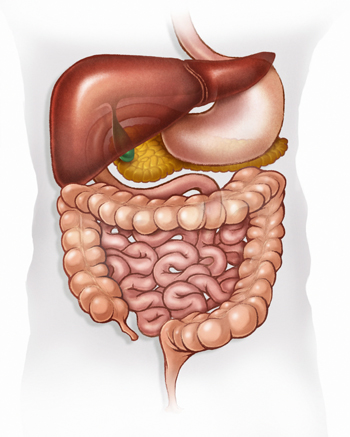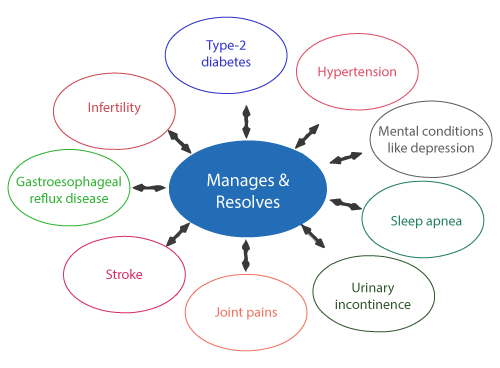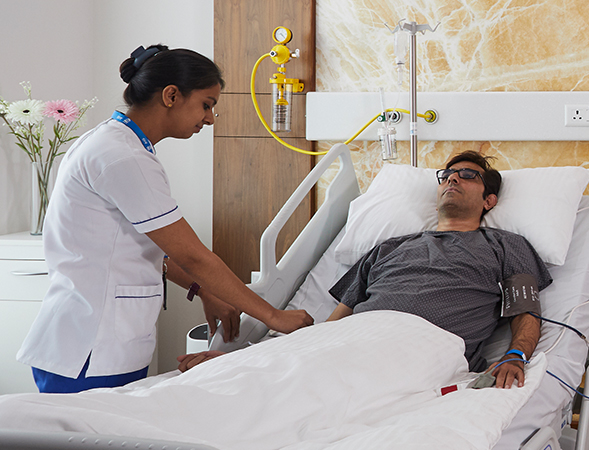Weight loss is not a magic, especially for obese people. Many people may have tried several strategies, such as dietary modifications and exercise, but failed to achieve their weight-loss goal. For such individuals, bariatric surgery could be of great help.
-
What is Bariatric Surgery? +
Bariatric surgery refers to a series of weight-loss procedures that help an obese person to meet his goals of weight loss. These surgeries are done by making a few changes in the digestive tract to reduce the capacity of the stomach to hold food.
According to the recent IFSO worldwide survey, about 634,897 bariatric surgeries were done in the year 2016. If the prevalence of obesity continues with this rate, it will take at least 43 years to operate on all the eligible candidates; this does not count on extra people who may become eligible if this prevalence continues1.
-
How does Bariatric Surgery work? +
 Bariatric surgery works either by altering the anatomy of the stomach and digestive system or by making necessary changes related to the balance of energy and fat metabolism. Changes in the anatomy of the gastrointestinal system may interfere with the production of the certain intestinal hormone. These hormonal changes act by:
Bariatric surgery works either by altering the anatomy of the stomach and digestive system or by making necessary changes related to the balance of energy and fat metabolism. Changes in the anatomy of the gastrointestinal system may interfere with the production of the certain intestinal hormone. These hormonal changes act by:- Reducing hunger, overeating, and increasing the feeling of fullness.
- Improving weight loss by increasing the amount of calories burned.
However, the way a bariatric surgery contributes to weight loss depends on the type, and several other factors, such as nutrition, physical activity, and behavioral changes after the surgery.
-
What are the types of Bariatric Surgery? +

Beyond BMI, several other factors are taken into consideration before choosing any of these types of bariatric surgery:
- Laparoscopic adjustable gastric band (LAGB): In this procedure, a small pouch is created by placing a ring around the upper region of the stomach. This makes the person feel full on small meals.
- Gastric sleeve surgery (Sleeve gastrectomy): In this procedure, about 80% of the stomach is removed by just leaving a small section of the stomach, which resembles like a banana. This procedure interferes with the appetite and the metabolism of the person.
- Gastric bypass: It is also referred to as Roux-en-Y gastric bypass. In this procedure, a small pouch is created that bypasses the stomach and duodenum. This mechanism changes the functioning of the gut hormones.
- Biliopancreatic diversion with duodenal switch: This procedure involves two separate surgeries. The first surgery is similar to sleeve gastrectomy, and in next, a portion of the small intestine is bypassed.
-
Who are the eligible candidates for Bariatric Surgery? +

Bariatric surgery could be a great option for individuals with the age of 18-65 years. However, the person should meet the following criteria for undergoing bariatric surgery:
1. BMI (body mass index) of 35 kg/m2 with or without co-morbid conditions.
2. A BMI of 32 kg/m2 with co-morbid conditions.
3. BMI >30 kg/m2 with central obesity WC >80cm (Females) and WC >90cm with at least any of the two metabolic syndrome:
- Elevated TG (> 150 mg/dL)
- Reduced HDL (< 40 mg/dL)
- Increased LDL
- Hypertension (>130/>85 mmHg)
- High FBS (> 100mg/dL)
4. BMI >27.5 kg/m2 with uncontrolled DM.
However, based on the person’s condition, the final decision whether the person is eligible for bariatric surgery or not will be taken by the doctor.
-
What are the benefits of Bariatric Surgery? +

Besides weight loss, bariatric surgery improves the ability of a person to perform daily life activities, which would ultimately improve the quality of life. In addition to this, it may help in managing and resolving several obesity-related conditions, such as:
- Type-2 diabetes
- Hypertension (high blood pressure) and other heart conditions
- Sleep apnea
- Urinary incontinence
- Joint pains
- Stroke
- Gastroesophageal reflux disease
- Infertility
- Mental conditions, especially depression
-
Are there any side effects with Bariatric Surgery? +
Like other major surgeries, bariatric surgery is also associated with certain complications. These complications may include:
- Excessive bleeding
- Infection
- Blood clots
- Leakage from the surgical site
- Diarrhea
- Side effects associated with anaesthesia
In the later stage of life, if the person does not maintain a healthy lifestyle and does not take the prescribed medicines, then the body fails to absorb sufficient nutrients. Due to a lack of nutrients, several health conditions, such as anemia, osteoporosis, and gallstones, may arise.
-
What to expect after Bariatric Surgery? +

Bariatric surgery changes the life of an individual for better. The success of any weight loss surgery depends on the following lifestyle modification after bariatric surgery:
- Eat and drink slowly to avoid stretching of the stomach
- Eat smaller meals
- Take the prescribed medicines
- Have a lean, protein-rich diet
- Stay hydrated
- Drink fluids between the meals
- Limit the intake of caffeine
- Exercise regularly
-
Does the person gain weight after Bariatric Surgery? +
In some cases, even if the procedure is working correctly, there are chances that the person may not lose enough weight. Additionally, if the person fails to follow the recommended lifestyle changes, then there is a high chance of weight gain, which may worsen the existing condition.
-
Is Bariatric Surgery a permanent cure for obesity? +
Bariatric surgery is a major event in any person’s life who needs weight loss to improve the quality of their life. No operation is a permanent solution for obesity. Obesity is a condition that requires life-long care and commitment. Aftercare and lifestyle modifications are must to achieve and maintain the desired results of healthy body weight.
References
1. https://www.ifso.com/pdf/4th-ifso-global-registry-report-last-2018.pdf
- 1


